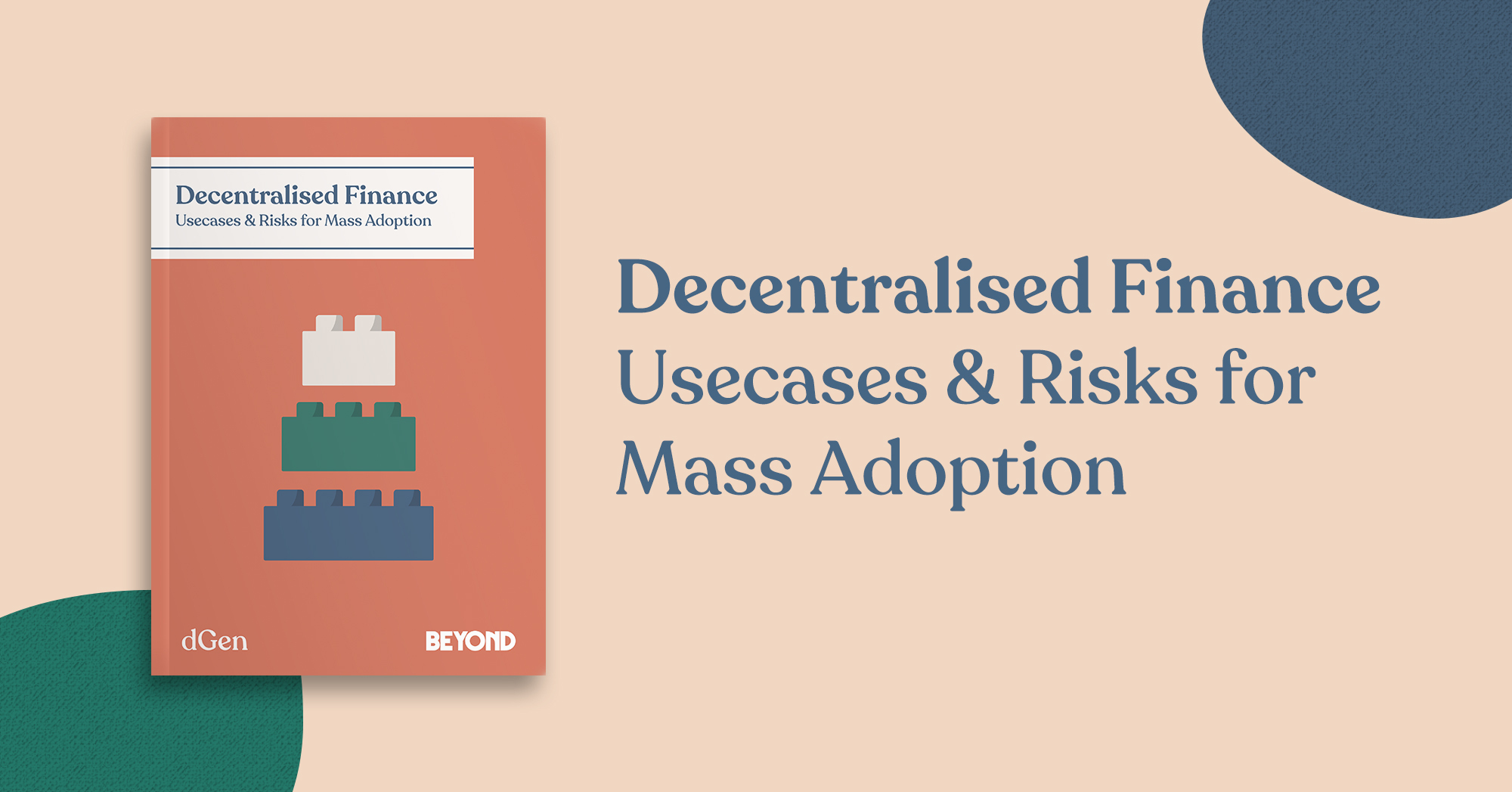BERLIN, GERMANY / ACCESSWIRE / July 15, 2020 / dGen released their latest report, "Decentralised Finance: Usecases and Risks for Mass Adoption" This report analyses the current landscape of Decentralised Finance (DeFi), including an in-depth look into the risks and future evolution of the space.

A number of notable leaders in DeFi projects, such as Aave, Synthetix, Consensys, Nexus Mutual, have weighed in on both the current state of DeFi and the changes they expect to see in the next 5-10 years. These quotes can be found below.
There is also a strong focus on what the impact will be in Europe and for European citizens.
Our top predictions for 2030 are:
- Stablecoins will become a critical component of international payments in Europe and beyond.
- Major audit firms, such as Deloitte and KPMG, will be a crucial part of the DeFi ecosystem.
- Effective insurance will make DeFi a trillion dollar industry.
- Traditional financial institutions in Europe will offer their first DeFi-enabled savings and pension accounts.
- DeFi will provide income for thousands of gamers, streamers, and influencers.
- There will be more pain as we grow.
Bitcoin was initially hyped as the new money. However, as digital currencies evolve, DeFi has proved that toppling state-controlled financial systems requires a far greater variety of services.
DeFi has seen major evolutions in the past two years, from stablecoins providing an alternative to volatile cryptocurrencies to autonomous lending that can function without any intermediaries.
However, even with all of these advancements, the sector has taken some hits this year, with a handful of hacks through early 2020. The top issues in Decentralised Finance, as well as current and future solutions necessary to protect early adopters, foster development, and make this industry scalable for mass adoption are all covered in this report.
Even while DeFi may not be fully matured, it seems it's not yet time to throw the baby out with the bathwater. The rise of these solutions to help protect early adopters along with the high interest rates on DeFi loaning, greater transparency, and peer-to-peer services that allow people to maintain complete ownership of assets throughout financial services, means that many are very excited about this subsector of the blockchain industry succeeding.
This report takes a hard look at what can be done now to mitigate risk when engaging in this young sector, as well as the challenges currently faced and potential fixes to not only make Decentralised Finance viable for the future, but a workable alternative to traditional banking systems for global populations.
Quotes
Marc Zeller, Integrations Lead, Aave:
'In DeFi, everybody has the same deal. Everything is open source, and the interest rates are the same. If you bring $100 or you bring $1 million, you get exactly the same deal. And that's brand new [in financial services]'.
'In five years, 90% of the users [of DeFi], in terms of individuals, will be liquidity providers looking for a safe haven for their savings. And they will use these kinds of third party applications, super easy to use.'
'Right now the biggest issue with all DeFi protocols, all users are at the same risk[...] That's why with Aave, we are going to launch staking very soon, and put the risk into the end of the LEND token holder.'
'If we don't reach a trillion dollar market in the next 15 years, it's a failure.'
'What prevents a lot of people from getting into DeFi is that they say, 'Yeah, I only make 0.5% a year in my traditional finance saving accounts, but I know that in case of failure, the bank will give me my money back'. [...] And I think it will be a gamechanger to have an insurance scheme to say, worst-case scenario, your money's back. So why stay at 0.5% interest per year?'
Kain Warwick, Founder of Synthetix:
'DeFi still has significant tail risk, so insurance is likely to remain very costly in the short term, but as protocols mature, costs should come down over time, allowing for simpler and more useful insurance to emerge'.
Hugh Karp, Founder of Nexus Mutual:
'I actually think regular people are going to start getting exposed through games or other communities first. Something with tokens underneath that you've earned through participation, which can then lead to exchanging them for digital USD'.
'As more regular people enter DeFi, protecting users is going to be paramount'.
Piers Ridyard, CEO of Radix:
'The complexity of getting yield via DeFi is going to start to be abstracted away by simple consumer apps that offer competitive rates on their savings, instant liquidity, and *almost* the same degree of deposit protections as their banks provide. From the consumer perspective, this is just going to be another financial app in their phone'.
About dGen
dGen is an independent non-profit think tank focusing on how emerging technology can contribute to a decentralised future in Europe and what this might mean for people, society, private entities, and the public sector over the coming decades.
dGen works with researchers and strategic partners to produce high-quality research reports about how emerging technologies can impact and shape existing industries. Find all of our reports at www.dgen.org.
Press contact:
Francisco Rodríguez
[email protected]
SOURCE: dGen



